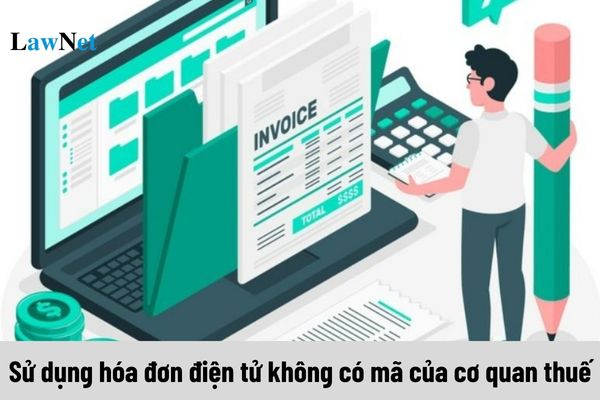Shall an enterprises operating in the field of electricity use authenticated electronic invoices in Vietnam?
Shall an enterprises operating in the field of electricity use authenticated electronic invoices in Vietnam?
Based on the provisions of Article 91 of the Law on Tax Administration 2019 regarding the application of e-invoices when selling goods, providing services as follows:
Application of e-invoices when selling goods, providing services
1. Enterprises, economic organizations use e-invoices with codes from the tax authority when selling goods, providing services regardless of the value of each sale, except for cases specified in clause 2 and clause 4 of this Article.
2. Enterprises operating in the fields of electricity, petroleum, postal and telecommunications, clean water, financial credit, insurance, healthcare, e-commerce business, supermarket business, commercial, air, road, railroad, sea, waterway transport and enterprises, economic organizations which have conducted or will conduct e-transactions with tax authorities, have built IT infrastructure, have accounting software systems, e-invoice creation software that meets the requirements for creating, accessing, and storing e-invoice data as per regulations and ensuring the transmission of e-invoice data to buyers and to the tax authority, can use e-invoices without codes from the tax authority when selling goods, providing services, regardless of the transaction value, unless there are high tax risks as defined by the Minister of Finance or if they choose to register for e-invoices with tax authority codes.
3. Business households and individuals subject to the provisions in clause 5 of Article 51 of this Law and in cases where revenue can be determined upon selling goods or services, use e-invoices with codes from the tax authority when selling goods, providing services.
4. Business households and individuals that do not meet the conditions to use e-invoices with tax authority codes as prescribed in clause 1 and clause 3 of this Article but need invoices to deliver to customers, or cases where enterprises, economic organizations, and other organizations are accepted by tax authorities to issue e-invoices for customers, then the tax authority will issue e-invoices with codes for each transaction and must declare and pay tax before the tax authority issues invoices for each transaction.
Thus, electricity trading companies are permitted to use authenticated electronic invoices when selling goods, providing services, regardless of the transaction value.
Note: Electricity trading companies must use invoices with tax authority codes if they fall under the high tax risk category as defined by the Minister of Finance and in cases where they register to use e-invoices with tax authority codes.

Shall an enterprises operating in the field of electricity use authenticated electronic invoices in Vietnam? (Image from the Internet)
When can an enterprises operating in the field of electricity use authenticated electronic invoices in Vietnam?
Based on the provisions of Article 18 of Decree 123/2020/ND-CP regarding issuing authenticated electronic invoices as follows:
Issuing authenticated electronic invoices
1. Enterprises, economic organizations can use authenticated electronic invoices when selling goods, providing services after receiving acceptance notice from the tax authority.
2. Enterprises, economic organizations use software to issue e-invoices when selling goods, providing services, digitally sign on e-invoices and send them to buyers by e-means agreed upon between the seller and the buyer, ensuring compliance with the legal provisions on e-transactions.
Thus, electricity trading companies are authorized to use authenticated electronic invoices when selling goods, providing services after receiving acceptance notice from the tax authority.
How are invoices handled In case the tax authority discovers the errors on unauthenticated e-invoices in Vietnam?
Based on the provisions of clause 3 of Article 18 of Decree 123/2020/ND-CP, in case the tax authority discovers that authenticated electronic invoices contain mistakes, the tax authority shall notify the seller using Form 01/TB-RSDT from Appendix IB issued with Decree 123/2020/ND-CP for them to verify the errors.
- According to the notification deadline stated on Form 01/TB-RSDT Appendix IB, the seller shall report to the tax authority using Form 04/SS-HDĐT in Appendix IA issued with Decree 123/2020/ND-CP about the verification of the erroneously issued e-invoice.
- If by the end of the notification deadline stated on Form 01/TB-RSDT Appendix IB the seller has not reported to the tax authority, the tax authority will issue a second notification to the seller using Form 01/TB-RSDT Appendix IB. If after the second notification period stated on Form 01/TB-RSDT Appendix IB the seller fails to report, the tax authority may consider transitioning to an inspection case regarding the use of e-invoices.

